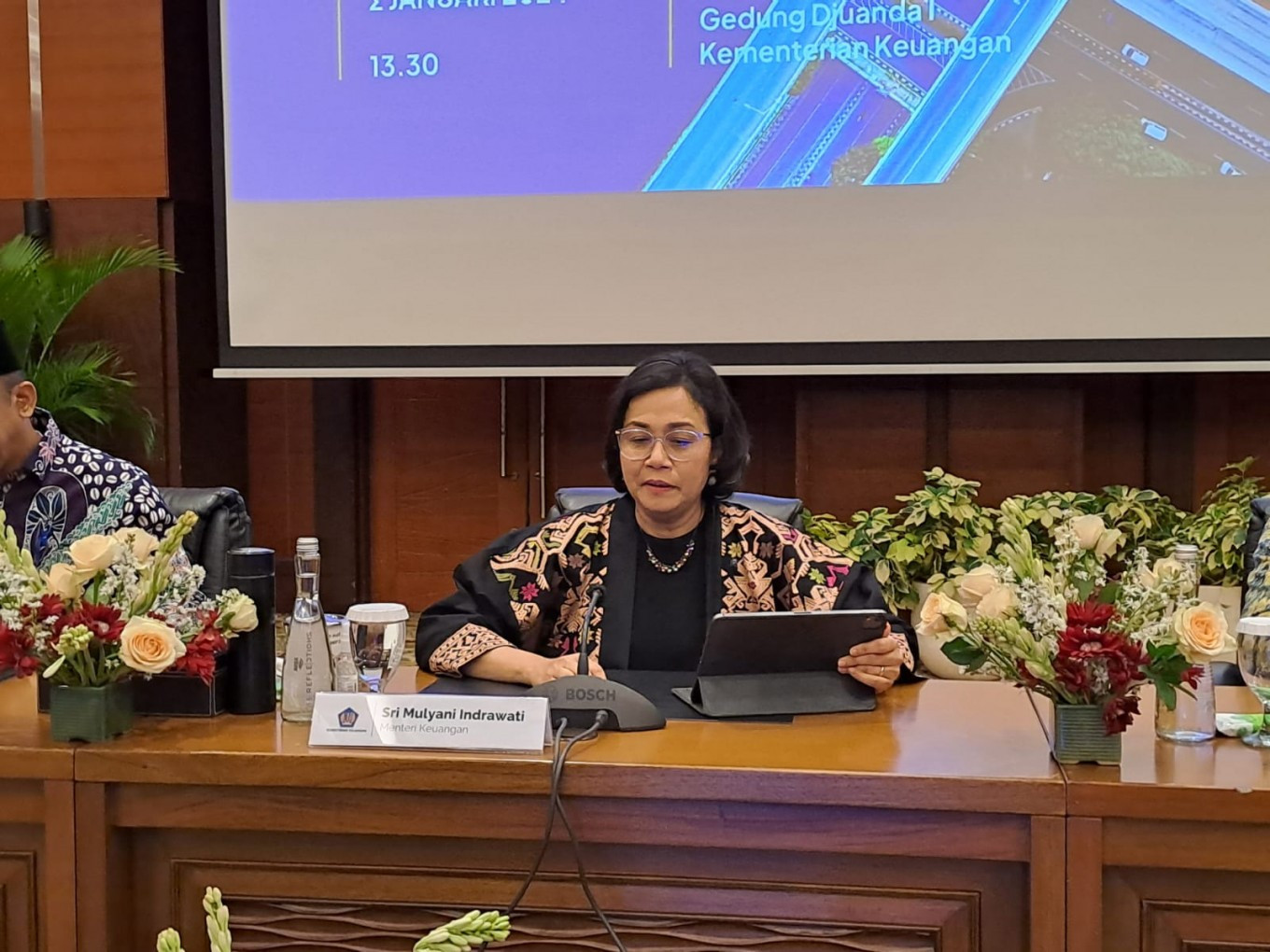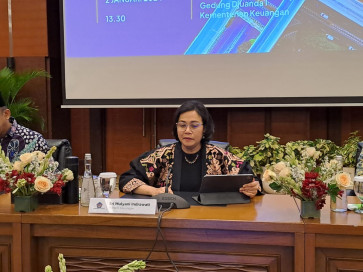Popular Reads
Top Results
Can't find what you're looking for?
View all search resultsPopular Reads
Top Results
Can't find what you're looking for?
View all search resultsAnalysis: Sri Mulyani’s reappointment sparks excitement and compromise
Change text size
Gift Premium Articles
to Anyone
S
ri Mulyani Indrawati was once again appointed finance minister under newly inaugurated President Prabowo Subianto, making her the first to serve under three different presidents, despite her and Prabowo’s initial reluctance. As Sri Mulyani remains in her position, Prabowo will have to compromise and delay his plan to establish a national revenue collection agency.
Prabowo also reappointed two deputy finance ministers, Thomas Djiwandono and Suahasil Nazara, and appointed Anggito Abimanyu as a third deputy finance minister. Sources say Anggito will eventually be appointed head of the National Revenue Agency (BPN), when the agency is established.
Given Sri Mulyani’s reputation, international and local businesses say they are happy with her reappointment as finance minister. Her appointment is also important to attract foreign investment in government bonds, as Prabowo’s administration will require a hefty budget to finance his signature programs, including the free nutritious lunch program.
Analysts predict that the market will welcome Sri Mulyani’s reappointment. When the market learned that she was among the ministerial candidates summoned by Prabowo to his home on Jl. Kartanegara, it reacted positively, with the Jakarta Composite Index (IHSG) rising by 0.32 percent, or 240 points, to reach 7,760 at the close of Friday trading, up from 7,520 the week before.
In the past, Sri Mulyani and then-defense minister Prabowo had disagreements over defense spending. But after Prabowo won the presidential election, their relationship steadily got better, as seen by Sri Mulyani's approval of the signature free nutritious lunch program and the appointment of Prabowo's nephew Thomas Djiwandono as her deputy minister.
However, Prabowo’s appointment of Sri Mulyani means that he has to shelve his plan to establish a national revenue agency, which has been included in Prabowo’s Asta Cita vision and mission as one of eight priority programs. The establishment of the revenue agency is to achieve Prabowo’s target of increasing the tax ratio from 10.21 percent in 2023 to 23 percent in 2029.
Just two weeks before the presidential inauguration, Prabowo’s brother Hashim Djojohadikusumo said he would consolidate the tax office and the customs and excise office into the revenue agency. Through the revenue agency, Hashim claimed, the government would increase state revenue by improving tax administration and addressing potential tax and non-tax losses. At the same time, the government would lower the income tax rate from 22 percent to 20 percent.



















